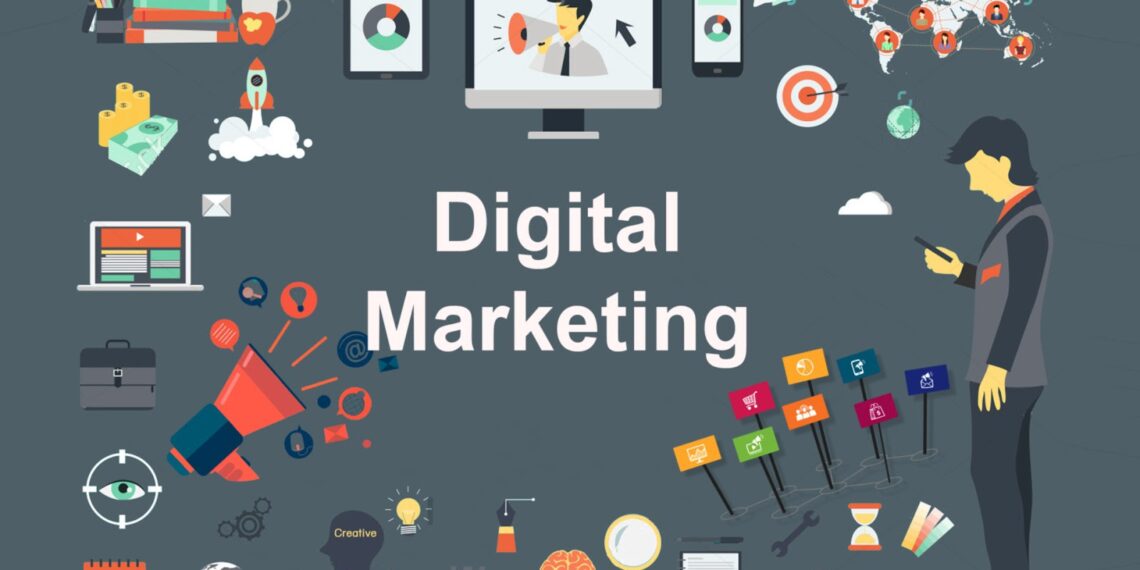Over the past many years, businesses have mass migrated onto online platforms. Today, no business worth its value is devoid of a social media and online presence. To deal with this, companies require professionals who can help navigate their operations in this digital space. These people are known as digital marketers. They form a core part of the marketing team in a company nowadays. Digital marketing is not limited to social media; it involves a digital marketer working in coordination with its offline marketing team to reach the same goal. The key responsibilities of a digital marketing job are given below:
Web Design and Development
A critical job that a digital marketer does is designing a functioning website for the company. The primary responsibility of the digital marketer, in this case, is to coordinate the design and functionality. Design refers to the user interface that attracts a potential client or a customer to stay on the page once they visit it. Functionality means that a visitor to the website should be easily able to navigate and toggle between different sections and leave only when their requirements have been met.
For example, in the case of e-commerce websites the digital marketer is responsible for the conversion of website visits to tangible online sales. Thus, the digital marketer must ensure that the shopping experience is as seamless as possible, where a buyer is able to search for products easily. Additionally, it also involves coordinating with the offline marketing team to include special deals and feature them prominently on the website. Such giveaways attract customers and often convinces them to buy.
The digital marketer coordinates with the web designer and the web developer to complete this process. The designer is in-charge of the interface, and the developer ensures functionality. The digital marketing professional’s role is to ensure their compliance with company requirements.
Content Strategy
Beyond the website’s design and the functionality, the digital marketer is responsible for the content that goes on it. It must reflect the company’s needs. For example, the home page needs to have content that accurately describes the company’s main activities and immediately clarifies to the reader that they are in the right place.
As another example, the digital marketer decides what goes into the sections that describe the company. Since the “About Us” page is generally one of the most common pages on the website, the digital marketer should ensure that the description given is not bland but catchy enough to retain the customer to visit other pages, where the transactions can happen.
SEO and SEM
It does not matter if a website is the best-designed site in the world, with top-notch functionality and great content if no one can find it. That is where the digital marketer has a crucial function to accomplish. They are responsible for identifying the target audience. They also ensure that potential customers visit their page before others. In other words, the website should be easy to find online.
This is where the role of SEO (Search Engine Optimization) and SEM (Search Engine Marketing) becomes vital. SEO involves the optimization of website structure and content in a way that makes engaging to the visitor. In addition, it should be easily readable by the search engines, so that they can pick them up and recommend them to the target audience. SEM involves paid marketing techniques, where the company is engaged in advertisements on other online places where their target audience frequents. Contact the world’s leading SEO company for both SEO and SEM services today.
Social Media
The online presence of a company, its brands and its trademarks are now not limited to just the websites. Therefore, it is essential to have that presence on social networking websites such as Facebook, Twitter, Google, to name a few. The primary reason why companies are interested in these platforms is that they allow interactions with the target audience and potential customers in real-time. The digital marketer is often responsible for the communication with them.
Thus, a digital marketer has the whole portfolio of managing a company’s online presence. That begins with website design and functionality and continues with content. They are also responsible for SEO, SEM and Social Media management. Their primary function to carry out these responsibilities in line with the broader marketing strategy of the company.

